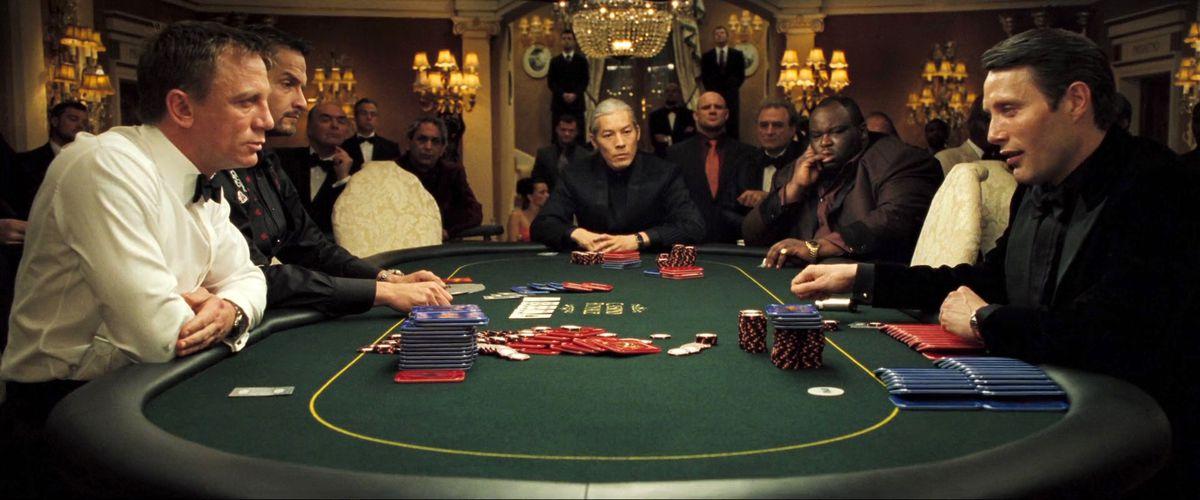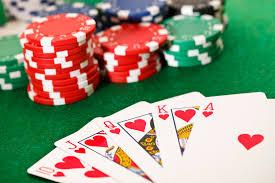Poker is a popular card game that can be played in various formats, such as Texas Hold’em (which I played), Omaha, and Seven-Card Stud among others. Its specific origins and date of creation are unknown. While poker is usually found in physical settings like casinos or at home, it has become increasingly popular on online platforms through computers and phones. Regardless of the format, you can either play alone or against computer-simulated players.
Whether you’re playing a casual game or tournaments, the duration often depends on the stakes and number of players involved. It can technically go on indefinitely if players keep buying chips to continue playing. Due to the complexity of the strategies, gambling, and the potential of significant financial stakes, this game is best suited for players who are at least teenagers without tendencies for bad habits.
Argument: Poker is one of the most popular gambling games, and its addictive nature can be associated with its mixture of skill and chance, depiction in popular media, and use of chips instead of cash as currency.
As the article mentions, well-designed games in poker’s genre find a good balance between structured design principles and the flexibility to allow for chance occurrences. More specifically, the randomness is incorporated directly into other aspects of the game that require skill. This is what keeps players hooked. They think they’re in control, when in reality, it’s just an illusion of control. They might assume they’re improving when their wins are actually due to luck. Then, when they make a big win after a loss, they’ll continuously think they’re improving and be stuck in this loop of losing and winning. We see how this shows up when people attempt to “chase a win” in poker or “get even.” All it takes is one win for someone to find the motivation to keep playing even after losses.
Furthermore, we see how this messes up the feedback loop discussed in lecture. When players “observe” a negative action, they usually “contextualize” it by understanding its consequences. However, because there’s positive feedback received when a hand is won, the player may use a prior win to justify or rationalize a single bad play, minimizing the effect of their bad play or attributing it to terrible luck. I played with a friend who constantly said “one loss doesn’t mean anything, I’ll just buy back in and make my money back.”
When I played poker, I also noticed that many of my wins had nothing to do with how expertly I played my hand. It was just because, luckily, the other players had received bad hands. I had to catch myself multiple times from feeling increasingly confident in my own skill and control over my outcome.

The reading does a great job of exploring how the visual and auditory characteristics of slot machines impact addictive gambling behavior. While poker isn’t affected in the same way, it exists at a more global level where it has been glamorized in the media through movies and popular culture. It’s associated with adventurous danger, fast wealth, and to a certain degree, it’s even been used to portray masculinity in movies. James Bond uses poker to outsmart an antagonist in Casino Royale, and many high-ranking mafia boss characters are seen engaging in poker games. No other gambling game is associated with these traits. In fact, something like slots generally receives negative attention and stigma based on what I’ve seen in popular media.

The author of the reading also mentions that the odds behind many gambling devices “have always been concealed in a box,” but poker takes this a step further. While poker’s probabilities are clearly laid out, it does a great job of hiding its real-world consequences unlike other games. A trick it uses is replacing cash with chips. This disconnects the player from the game, making them treat it as a fun activity when it actually involves real money. This is even different from games like slots where you usually have to consciously, repeatedly feed cash into a machine. At the same time, because you don’t see chips as real cash, you’re less inclined to learn the rules since it’s just a “fun game.” Even worse, when you play online poker like I did, there’s this additional layer of disconnect between chips and cash from being virtual.

A major counterargument is that because all the probabilities and rules are known, we should know that we are objectively more likely to lose than win in poker. However, the article makes an excellent point about how “human spontaneity, […], impulses, and inclinations resistant to prediction and rational justification” make our minds “escape calculation.” Rather than focusing on the objective facts, which are against our favor, we as humans enjoy risk and spontaneity.
I’m slowly becoming an avid poker player, but I’ve noticed and avoided many of the pitfalls I discussed in this essay. However, there are so many people in the world, from social media designers to casino owners, working to exploit my addictive tendencies. One of the main takeaways I’ve had from writing this Critical Play, reading the provided text, and listening to Anthony’s lecture is that I need to be more conscious about my perception of gambling in both games and real-life events (such as dating). No one is safe. Even though I personally believe I’m fairly resistant to addiction, there’s always going to be certain activities that push my limits of self control.




